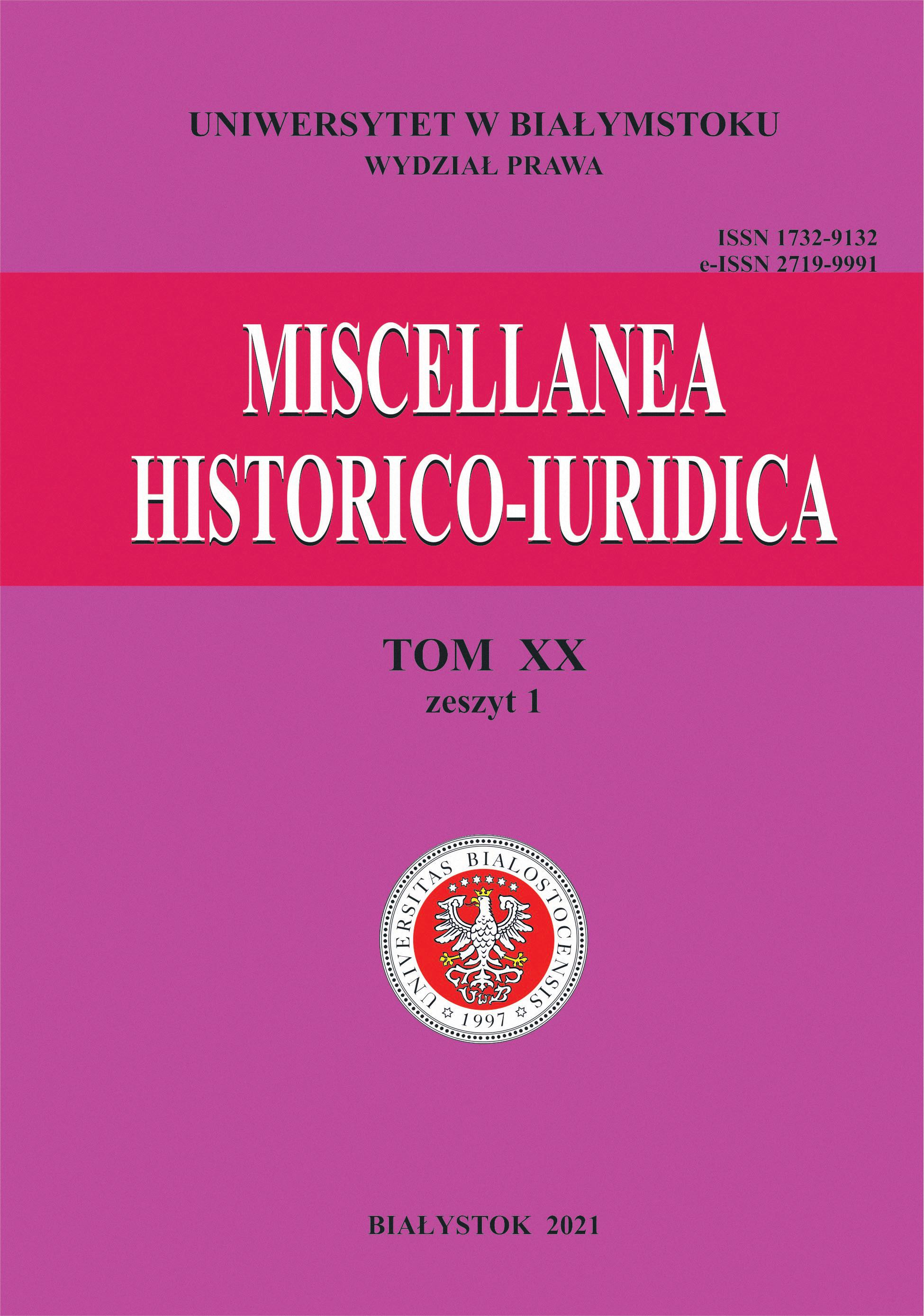Niemiecki kodeks cywilny w pracach Komisji Kodyfikacyjnej nad Kodeksem zobowiązań z 1933 r.
The German Civil Code in the Work of the Codification Committee on the Code of Obligations of 1933
Author(s): Wojciech WydmańskiSubject(s): History, Law, Constitution, Jurisprudence, History of Law, Political history, Social history
Published by: Wydawnictwo Uniwersytetu w Białymstoku
Summary/Abstract: The work aims to discuss the use of the German Civil Code from 1896 (BGB) by the Codification Commission in the work on the Code of Obligations from 1933. The subject of codification and unification of private law in the interwar period is of great interest to historians of law. It is also an issue for experts in comparative legal studies. This is since the process of unification and codification of the law of obligations in the Second Polish Republic assumed the development of a code combining elements of all laws of the former partitioning states. As a result, the Polish Code of Obligations does not belong to either the Romanesque or the Germanic system. Particularly noteworthy is the use by members of the BGB Codification Committee. The work will present a list of the provisions of the Code of Obligations that were modeled only on the German law or on the BGB and other codes. Additionally, the use of BGB will be presented on selected regulations of the Code of Obligations. When determining the impact of BGB on the rules of the Code of Obligations, a comparative method and the texts of normative acts, legislative materials, and legal literature will be used. The justification for the draft Code of Obligations by Roman Longchamps de Bérier will be particularly helpful. The subject matter raised in the paper may turn out to be attractive to Polish and German researchers studying the impact of the BGB on the development of Polish obligation law.The work aims to discuss the use of the German Civil Code from 1896 (BGB) by the Codification Commission in the work on the Code of Obligations from 1933. The subject of codification and unification of private law in the interwar period is of great interest to historians of law. It is also an issue for experts in comparative legal studies. This is since the process of unification and codification of the law of obligations in the Second Polish Republic assumed the development of a code combining elements of all laws of the former partitioning states. As a result, the Polish Code of Obligations does not belong to either the Romanesque or the Germanic system. Particularly noteworthy is the use by members of the BGB Codification Committee. The work will present a list of the provisions of the Code of Obligations that were modeled only on the German law or on the BGB and other codes. Additionally, the use of BGB will be presented on selected regulations of the Code of Obligations. When determining the impact of BGB on the rules of the Code of Obligations, a comparative method and the texts of normative acts, legislative materials, and legal literature will be used. The justification for the draft Code of Obligations by Roman Longchamps de Bérier will be particularly helpful. The subject matter raised in the paper may turn out to be attractive to Polish and German researchers studying the impact of the BGB on the development of Polish obligation law.
Journal: Miscellanea Historico-Iuridica
- Issue Year: 20/2021
- Issue No: 1
- Page Range: 27-51
- Page Count: 25
- Language: Polish

